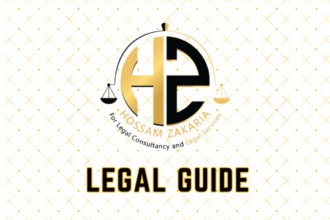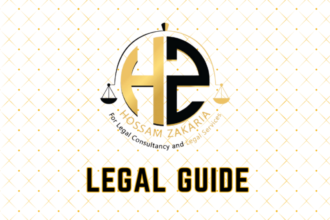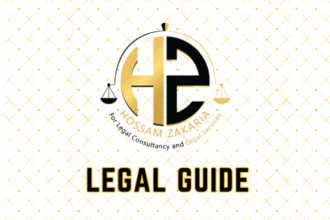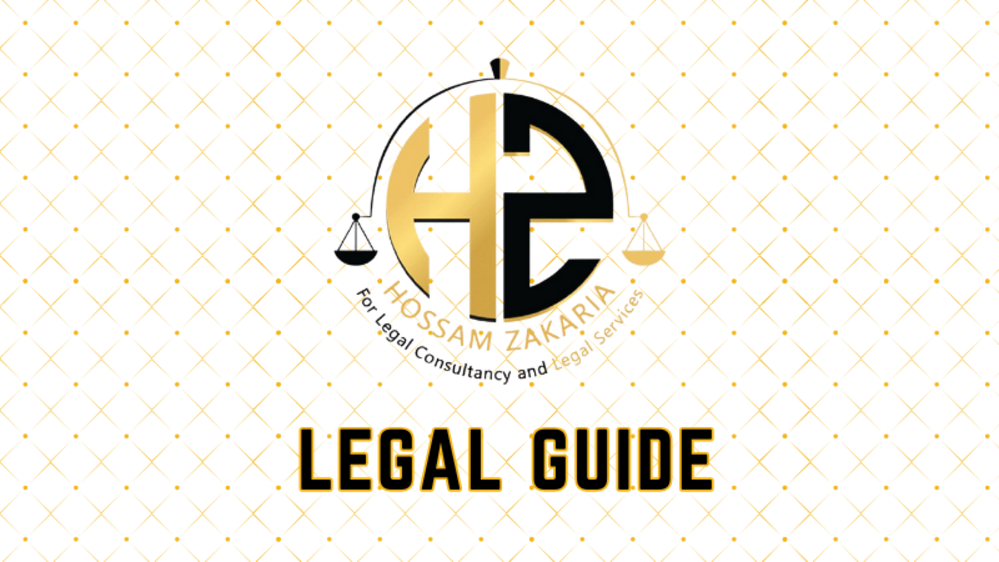Introduction to UAE Bank Debt Recovery and Enforcement in 2025
As the UAE’s banking landscape continues its trajectory of robust growth, effective debt recovery and enforcement mechanisms are more crucial than ever. Recent updates in the legal and regulatory frameworks—particularly those initiated from 2023 through 2025—have introduced new compliance standards, enforcement tools, and strategic options for both lenders and borrowers. For financial institutions, businesses, in-house legal professionals, and HR managers, understanding these changes is vital for safeguarding assets, navigating risks, and optimizing debt collection procedures within the complex UAE legal system. This article offers an authoritative, consultancy-grade analysis of UAE bank debt recovery and enforcement law as it stands in 2025, translating recent reforms into actionable insights for compliance, risk management, and strategic decision-making.
This analysis draws upon the latest statutes, including the Consumer Protection Regulation under Central Bank Circular No. 8/2020, the UAE Federal Decree Law No. 20 of 2018 on Anti-Money Laundering and Combatting Financing of Terrorism, and Cabinet Resolution No. 57 of 2018, as well as Ministry of Justice and official UAE Government Portal guidance. By systematically reviewing these rules and benchmarking recent innovations against prior frameworks, this article sets out best practices and professional recommendations for successful bank debt recovery and enforcement across the UAE in 2025 and beyond.
Table of Contents
- Legal Framework: Debt Recovery and Enforcement in the UAE
- Recent 2025 Updates: Key Legal Changes
- Stages of Debt Recovery in the UAE
- Enforcement Mechanisms: Practical Application
- Comparing Old and New UAE Law
- Case Studies: Application in UAE Business Context
- Risks of Non-Compliance and Mitigation Strategies
- Compliance Checklist for 2025
- Conclusion: Shaping the Future of Debt Recovery in the UAE
Legal Framework: Debt Recovery and Enforcement in the UAE
Overview of Relevant Legislation
The UAE’s regulatory ecosystem for bank debt recovery is built upon a foundation of both federal and local laws. Key provisions dictate the contractual formation, default management, and creditor protections available to lenders. Core statutory instruments for 2025 include:
- Federal Law No. 20 of 2016 on the Pledge of Movable Assets as Security for Debt: Enabling registered, non-possessory pledges of movable assets to support faster enforcement.
- Cabinet Resolution No. 57 of 2018 on Executive Regulations of the Civil Procedures Law: Outlining procedures for civil debt recovery and introducing expedited summary procedures.
- Federal Law No. 18 of 1993 (Commercial Transactions Law, updated by Federal Decree-Law No. 14 of 2020 and amendments): Governing negotiable instruments (cheques, promissory notes, bills of exchange).
- Central Bank Circular No. 8/2020 – Consumer Protection Regulation and Standards: Mandating responsible lending, borrower notification, and documentation standards.
- Federal Decree Law No. 9 of 2016 on Bankruptcy (amended by Federal Decree Law No. 23 of 2019): Updating insolvency resolution and creditors’ remedies.
An effective debt recovery strategy requires both technical expertise and an appreciation of these statutory nuances, supported by adherence to related administrative guidance from the Ministry of Justice and the UAE Central Bank.
Scope and Jurisdictional Considerations
The UAE distinguishes between the federal judiciary (which applies across all emirates except Dubai and Ras Al Khaimah for certain matters) and the local judicial systems, resulting in procedural variations. While most banking disputes are resolved under the federal courts, Dubai International Financial Centre (DIFC) Courts and Abu Dhabi Global Market (ADGM) Courts offer alternative frameworks—especially for cross-border transactions—in line with their own sets of rules and enforcement treaties.
Recent 2025 Updates: Key Legal Changes in UAE Bank Debt Recovery
Decriminalization and Digitalization Initiatives
The post-2021 period in the UAE has witnessed sweeping reforms aimed at modernizing debt recovery and reducing reliance on criminal enforcement for bounced cheques and other defaults. Notable changes, reinforced through 2025, include:
- Decriminalization of Most Bounced Cheques: Federal Decree-Law No. 14 of 2020 significantly narrowed criminal liability for insufficient funds, pivoting towards civil enforcement (with certain exceptions for fraud and forgery).
- Central Bank Digital Reporting Systems: The UAE Central Bank has rolled out digital platforms for reporting and tracking non-performing loans, streamlining creditor access to debtor information and blacklists.
- Electronic Service of Process: Implementation of e-notification and case filing, especially in Abu Dhabi Judicial Department and Dubai Courts, increases efficiency and accelerates debt actions.
Strengthening Creditor Rights
Through Cabinet Resolution No. 57 of 2018 and amendments up to 2025, creditors now enjoy more streamlined summary judgment procedures and asset freezing mechanisms. Meanwhile, the Movable Collateral Registry—implemented under Federal Law No. 20 of 2016—has been updated, granting greater visibility and priority for registered security interests in movable assets ranging from vehicles to inventory. These evolution reflect the UAE’s objective of aligning domestic law with global best practices while attracting further foreign investment.
Sustainable Lending and Consumer Protections
Central Bank Circular No. 8/2020 mandates that all banks adopt fair lending standards and regularly review borrower affordability, with stringent reporting and early-warning mechanisms for distressed loans. The introduction of consumer dispute resolution sections within key financial institutions improves transparency for individuals and companies alike. These directives support sustainable lending and reduce future litigation or enforcement exposure.
Stages of Debt Recovery in the UAE
1. Pre-Litigation Collection and Negotiation
Most debt matters begin with informal negotiations, involving:
- Formal demand letters, typically drafted in Arabic and in compliance with UAE legal notice standards
- Repayment rescheduling or settlement offers
- Alternative dispute resolution (conciliation/mediation facilitated by bank compliance teams or appointed lawyers)
Banks are strongly recommended to document all pre-action communications, as failure to demonstrate good faith efforts can later impact court or regulatory outcomes.
2. Civil Proceedings and Summary Procedures
If out-of-court measures fail, lenders can initiate civil proceedings, which—under the revisions of Cabinet Resolution No. 57 of 2018 and subsequent reforms—allow creditors to seek summary judgment on clear, undisputed debts. Other key aspects include:
- Submission of admissible documentary evidence (such as loan agreements, facility letters, bounced cheque copies, account statements)
- Electronic case initiation and notification, available in most courts as of 2025
- Protection of creditors’ rights through pre-judgment attachments (asset freezing orders)
3. Enforcement of Judgments and Asset Seizure
Once a judgment is secured, the enforcement process involves:
- Registering the final order with the relevant Execution Court
- Seizure and auctioning of movable and immovable assets
- Direct deduction from debtor bank accounts, subject to permitted exemptions
- Use of the Movable Collateral Registry to search and enforce against registered assets
For cross-border matters, the UAE remains party to a series of treaties facilitating the recognition and enforcement of foreign judgments.
Enforcement Mechanisms: Practical Application in 2025
Asset Tracing and Freezing
Under Cabinet Resolution No. 57 of 2018 and the Civil Procedures Law, creditors are empowered to request urgent asset freezing orders upon proving a risk of dissipation. As of 2025, these requests can frequently be made electronically, dramatically reducing processing time. The Movable Collateral Registry—now integrated with the Central Bank systems—provides a real-time snapshot of all encumbered movables.
Direct Bank Account Deductions
Enforcement courts may authorize direct deductions from the debtor’s bank account(s). This remedy is subject to certain statutory minimum balances (exemptions) to preserve subsistence, in compliance with Ministry of Justice guidelines. The Central Bank acts as the primary liaison in coordinating among multiple banks.
Sale and Auction of Assets
Both movable and immovable assets are eligible for court-ordered sale. Post-2018 reforms to auction and valuation standards have increased transactional transparency, with registered professionals overseeing the process. For complex, high-value recoveries, execution proceedings increasingly leverage digital platforms, reducing room for delay or manipulation.
Cross-Border Enforcement
The UAE’s robust network of legal assistance treaties—including the GCC Execution Treaty and reciprocal arrangements with key trading partners—enables courts to pursue assets held outside the UAE, provided the originating judgment complies with local due process and finality standards.
Comparing Old and New UAE Law: Penalties, Processes, and Compliance Demands
The following table sets out key differences between the old and new approaches to bank debt recovery in the UAE, reflecting legal developments up to 2025.
| Aspect | Old Law (Pre-2020) | Revised Law (2020–2025) |
|---|---|---|
| Cheques Bounced | Criminal liability standard, Automatic travel bans |
Narrowed criminal liability, Civil enforcement prioritized, Limited travel restrictions |
| Pre-Enforcement Asset Attachment | High evidentiary bar, paper-based | Summary process, Digital e-filing, lower threshold |
| Movable Asset Security | Possessory pledge required, Slower enforcement |
Registered, non-possessory pledges, Digital Movable Collateral Registry, Faster enforcement |
| Bankruptcy Alternatives | Stigma, limited restructuring tools | Formal debtor-in-possession reorganization, Expedited preventive composition |
| Consumer Protection | Light regulation, Limited borrower process |
Central Bank supervision, Mandatory affordability reviews, Borrower dispute rights |
Visual Aid Suggestion
Penalty Comparison Chart: A bar chart visualizing reduction in criminal cases for bounced cheques and increase in civil actions, 2018–2025.
Case Studies: Application in UAE Business Context
Case Study 1: Recovery from a Corporate Borrower (2025 Scenario)
Background: A UAE-based SME defaults on a AED 5 million loan from a national bank. Negotiations yield no resolution.
Process:
- The lender’s legal team drafts a formal Arabic demand notice, referencing Central Bank Circular No. 8/2020 standards for borrower notification.
- Upon non-payment, the bank files a digital civil suit using UAE e-court portals.
- The lender secures a summary judgment and requests an urgent freezing order—granted via expedited digital application.
- Enforcement officers, aided by the Movable Collateral Registry, seize assets (commercial vehicles and stock-in-trade).
- Proceeds from court-supervised auction are applied to extinguish the outstanding debt.
Insight: The process is notably faster and more predictable than pre-2020 approaches, minimizing reputational and commercial risk for the lender while preserving due process for the borrower.
Case Study 2: Bounced Cheque — Individual Borrower (2025)
Background: An individual issues a cheque that is returned for insufficient funds.
Application of Updated Law:
- The bank files a civil lawsuit. There is no automatic criminal case unless fraud or forgery is alleged.
- The court, relying on Ministry of Justice guidelines, issues a money judgment without travel ban (unless evidence of flight risk).
- The lender applies for an order to attach the debtor’s salary and bank balances, adhering to income exemption thresholds set by Central Bank regulations.
Insight: Bounced cheques are now resolved primarily through expedited civil processes, reducing incarceration rates and supporting the UAE’s reputation as a modern financial hub.
Risks of Non-Compliance and Mitigation Strategies
Regulatory and Litigation Risks
Institutions that fail to adapt to the 2025 standards risk significant adverse consequences:
- Regulatory fines: Especially for breaches of Central Bank Circular No. 8/2020, non-adherence to responsible lending or reporting.
- Enforcement delays or denials: If loan documentation or asset registry compliance is lacking.
- Reputational risk: Particularly if borrowers allege procedural irregularities or unfair practices.
- Personal liability for executives: For knowing or reckless breaches of statutory requirements (under Anti-Money Laundering and consumer protection laws).
Best Practice Mitigation Strategies
- Implement comprehensive KYC and credit due diligence protocols before extending credit.
- Utilize digital loan management systems integrated with the Movable Collateral Registry and Central Bank’s Digital Reporting platform.
- Update internal compliance and training programs to address 2025 regulatory reforms, including the latest Central Bank and Ministry of Justice circulars.
- Conduct periodic portfolio stress tests and legal audits to identify emerging risks.
- Collaborate with expert legal counsel early for complex recoveries, cross-border enforcement, or restructuring.
Compliance Checklist for 2025
| Compliance Step | Legal Basis | Best Practice |
|---|---|---|
| Pre-disbursement KYC | Federal Decree Law No. 20 of 2018, Central Bank Circular No. 8/2020 |
Review all corporate and individual credentials and beneficial ownership |
| Loan Documentation | Commercial Transactions Law Central Bank Guidelines |
Arabic/English contracts, clear security clauses, digital contract archiving |
| Asset Registration | Federal Law No. 20 of 2016 | Register all secured interests with Movable Collateral Registry |
| Pre-suit Demand | Civil Procedures Law | Issue formal notice, retain delivery proof, allow reasonable cure period |
| E-Filing and Service | Cabinet Resolution No. 57 of 2018 | Use court e-portals, adhere to notification standards, translate all filings |
| Summary Judgment | Civil Procedures Law | File strong prima facie evidence for undisputed debts |
| Asset Attachment/Freezing | Civil Procedures Law | Expedite digital application upon risk of dissipation |
| Compliance Training | Central Bank & Ministry of Justice | Annual staff training and compliance updates |
Visual Aid Suggestion
Process Flow Diagram: Depicting the typical streamlined 2025 recovery pathway from pre-litigation demand to final enforcement and asset realization.
Conclusion: Shaping the Future of Debt Recovery in the UAE
In 2025, the landscape of UAE bank debt recovery and enforcement stands as a testament to sustained reform, digital modernization, and a deliberate pivot towards civil rather than criminal recourse. For lenders and borrowers alike, the new regime offers greater predictability, procedural fairness, and risk management options, provided full compliance with the latest legal mandates is maintained. Navigating this evolving framework demands not just regulatory awareness but also updated contract practices, proactive stakeholder engagement, and regular alignment with Ministry of Justice and Central Bank guidance. In the years ahead, it will be the institutions that integrate digital solutions, prioritize compliance, and invest in legal expertise that will lead in financial resilience and operational excellence.
Businesses, executives, and HR managers should act now: update internal policies, consult with local legal advisors, and ensure all documentation and processes are future-proofed against the next wave of UAE law 2025 updates. In so doing, organizations will not only mitigate risk but also harness the UAE’s dynamic framework for building long-term, sustainable commercial growth.



